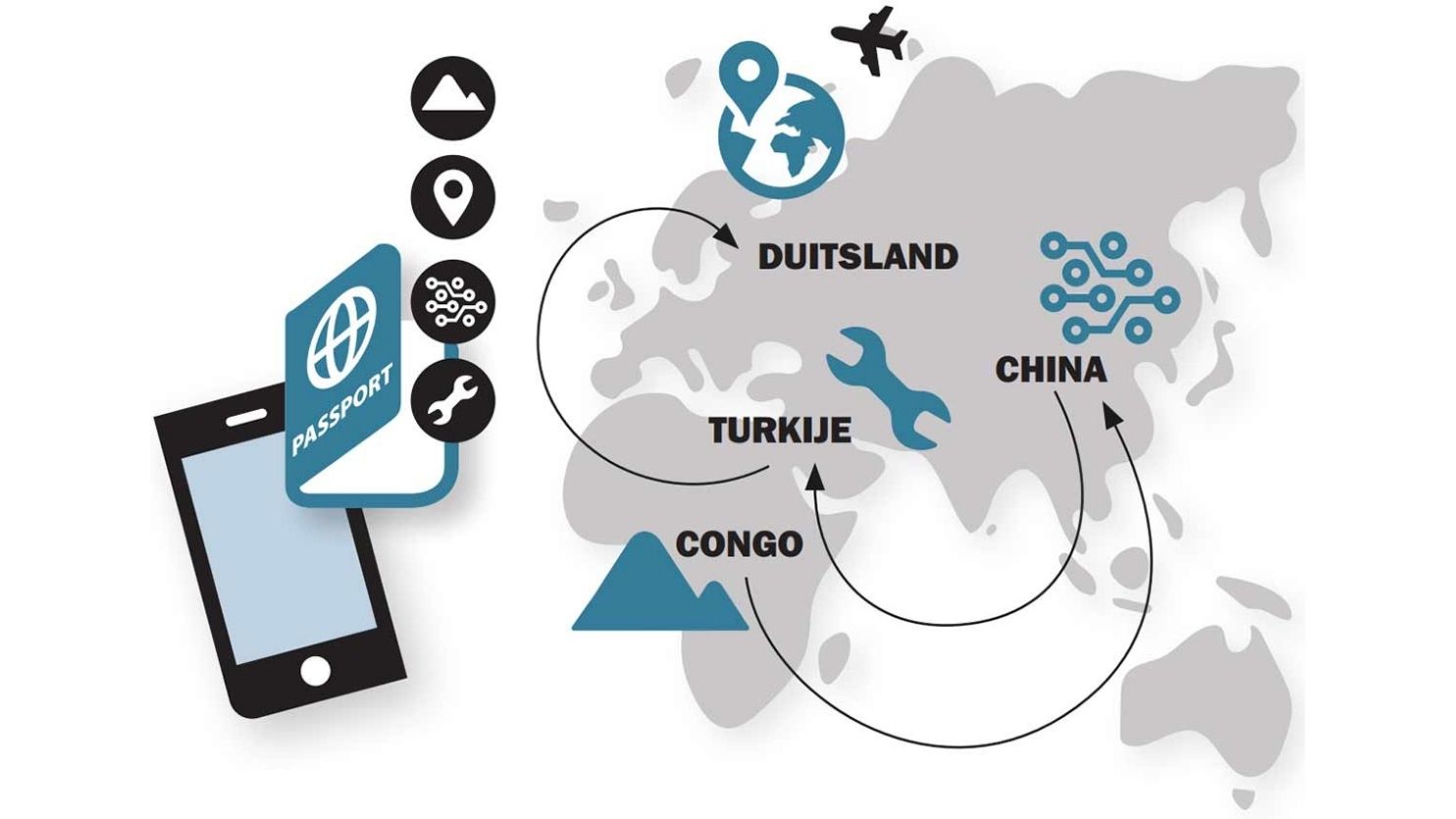Digital Product Passport
Organizations are increasingly expected to report on how a product is made. Is it really as green (CO2) as claimed? What is the usage history of the product? Which components could be reused? To answer these questions, we are working on Digital Product Passports (DPPs).
What is a Digital Product Passport?
A Digital Product Passport (DPP) is a standardized digital document that contains extensive information about the composition, production, use, and recycling of a product. The goal of a DPP is to improve the sustainability and transparency of products by providing detailed data throughout the entire lifecycle of a product. This helps organizations make better-informed decisions and achieve their sustainability goals.
The DPP provides insights into:
- How products can be reused at the end of their lifecycle: recycling, reusing, repairing, etc.
- Insight into the circular economy, enabling policymakers to create effective and targeted policies.
An example: the Battery Passport
Electric vehicles, along with their batteries, are transferred to new owners. Batteries require repair and maintenance. Batteries can be reused and deployed for new applications, such as balancing the power grid. And when a battery can no longer be used, it contains valuable materials that can be safely and sustainably recovered. Well-maintained battery data and associated access control would support and improve decision-making regarding lifespan, reuse, and recycling, resulting in both positive economic and environmental impacts.
In collaboration with partners, TNO has developed a prototype of a “Battery Passport.” This digital product passport tracks battery data throughout their entire lifecycle, including production, reuse, and recycling. It includes both static data from the manufacturer and dynamic data such as the battery's health status. The prototype demonstrates that all necessary technologies and data model standards are available for a regulatory-compliant battery passport that also meets access control requirements. Read more about it in this whitepaper (pdf).

Why should your organization take action now?
Implementing DPPs is not only a step towards a more sustainable future but also a necessary adaptation to the changing regulations in Europe. New legislation, such as the Corporate Sustainability Reporting Directive (CSRD) and the Circular Economy Action Plan (CEAP), require organizations to provide detailed reports on their CO2 emissions and resource use. Additionally, Europe is actively working on realizing the entire economy circular, with corresponding policies legislation, such as the ESPR. By investing in DPPs now, your organization can go beyond regulatory compliance, and also benefit from the many advantages that DPPs offer.
How to start with Digital Product Passports?
Implementing DPPs begins with collecting detailed data about your products. This can be challenging, but there are numerous initiatives and projects, such as the CIRPASS2 project in which TNO develops the DPP system architecture, that help organizations develop and standardize DPPs. By collaborating with experts and utilizing existing frameworks, your organization can quickly and efficiently get started with DPPs.
While gaining insights into products and production chains can reveal potential improvements or issues within the chain, it does not solve them. For that, knowledge about materials, product design, and production processes is needed. This expertise is also available within TNO.
Collaborating with TNO
TNO helps organizations devise suitable solutions and ensure they align with broader European policy developments. Through rapid prototyping, we can let organizations experience how a DPP would feel for their sector. Additionally, we have methodologies that enable us to harmonize and maintain the semantics of a Digital Product Passport (DPP) for a broad group of stakeholders. Furthermore, based on experience from various sectors, we know how to integrate inputs from a multitude of sources, including regulations, into a DPP. Would you like to contribute to a technical solution, or do you have a request for assistance from your sector?
Laat je verder inspireren
Digitalisation and sustainability: how AI can help


Time setter story: Kallol Das


Time setter story: Annemieke Kips


Time setter story: Belma Turkovic


TNO’s view of 2030: Digital privacy and security for everyone



